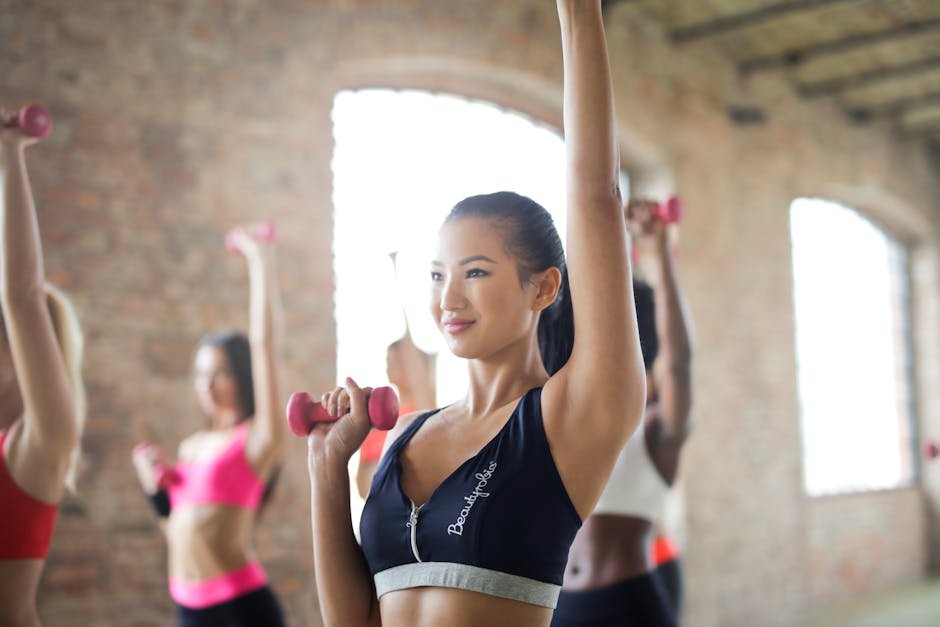The Key Elements of Effective Personalized Coaching in Sports Training
Understanding personalized coaching in sports training
Personalized coaching in sports training involves tailoring training programs specifically to individual athletes. Coaches assess each athlete's strengths and weaknesses to create personalized strategies that help them reach their full potential. This approach allows for focused attention on the athlete's needs, resulting in more effective and efficient training sessions. Regular feedback and adjustments are essential components of personalized coaching to ensure that athletes are constantly improving.
Benefits of personalized coaching
Personalized coaching in sports training offers tailored guidance to improve your skills and performance efficiently. Here are some benefits you can expect:
Customized Training: Receive personalized workouts and strategies based on your strengths and weaknesses.
Increased Accountability: Stay motivated and on track with regular check-ins and feedback from your coach.
Optimized Performance: Experience faster progress and better results due to individualized attention.
Injury Prevention: Reduce the risk of injuries with proper technique guidance and training adjustments.
Enhanced Mental Focus: Develop a winning mindset and mental toughness through personalized coaching support.
Setting tailored goals and plans
Personalized coaching in sports training involves setting goals and creating plans that are specific to an individual's needs and abilities. Tailored goals help athletes focus on their unique strengths and areas for improvement, leading to more efficient progress. By customizing plans, coaches can address the specific needs of each athlete, which can enhance performance and motivation. Setting tailored goals and plans is a fundamental aspect of successful personalized coaching in sports training.
Individualized feedback and support
Coaches who offer individualized feedback and support cater their guidance to each athlete's unique needs and goals. This tailored approach helps athletes improve faster and achieve better results. Through personalized coaching, athletes receive specific advice on their strengths and weaknesses, allowing them to enhance their skills in targeted areas. This type of support fosters a strong coach-athlete relationship and promotes continuous growth and development in sports training.
Specialized training techniques
To enhance performance, specialized training techniques target specific skills or aspects of an athlete's performance. These techniques are tailored to an individual's needs, focusing on areas that require improvement, such as speed, endurance, agility, or strength. Specialized training can include drills, exercises, or simulations that mimic game scenarios to develop the necessary skills. Coaches use these techniques to help athletes reach their full potential by honing their abilities in a targeted and effective manner.
Building a strong coach-athlete relationship
To build a strong coach-athlete relationship, communication is vital. Being open and honest with each other helps establish trust and understanding. Active listening also plays a crucial role in this relationship. Athletes should feel heard and valued by their coaches. Consistent feedback is essential for growth. Clear, constructive feedback helps athletes improve and shows that the coach is invested in their development. Mutual respect is the foundation of a successful coach-athlete relationship. When both parties value each other's perspectives and efforts, it fosters a positive and productive environment for training and learning.
Monitoring progress and adjusting strategies
To ensure progress in sports training, it's crucial to constantly monitor and adjust strategies as needed. Keep track of performance metrics and observe how athletes are responding to the coaching techniques. Make necessary tweaks to training plans to optimize results. Feedback from athletes is valuable in understanding what's working and what needs improvement. Regular assessments and adjustments are key to achieving peak performance.
Importance of mental and emotional support
Mental and emotional support is crucial in sports training as it can greatly impact an athlete's performance. Athletes who receive adequate support are more likely to stay motivated, focused, and resilient in the face of challenges. Good mental and emotional support can help athletes cope with pressure, manage stress, and maintain a positive attitude. It plays a significant role in boosting confidence and self-belief, which are essential for success in sports. Coaches who provide this type of support create a nurturing environment that encourages athletes to reach their full potential.
Incorporating technology in personalized coaching
Technology plays a crucial role in personalized coaching for sports training. It allows coaches to track athletes' performance more accurately, analyze data quickly, and provide immediate feedback. With the use of wearable devices and video analysis software, coaches can gather detailed information on an athlete's movements, strengths, and areas for improvement. This data helps coaches tailor training programs to suit individual needs, leading to better results and performance outcomes. By integrating technology into personalized coaching, athletes can achieve their full potential and excel in their sporting endeavors.
Achieving peak performance through personalized coaching
Personalized coaching in sports training helps athletes reach their highest potential by tailoring training plans to individual needs. Coaches work closely with athletes to understand their strengths and weaknesses, develop customized training programs, and provide timely feedback for improvement. This approach allows athletes to focus on specific areas for growth, leading to enhanced performance outcomes. By incorporating personalized coaching strategies, athletes can optimize their training, refine their skills, and achieve peak performance levels in their respective sports.
